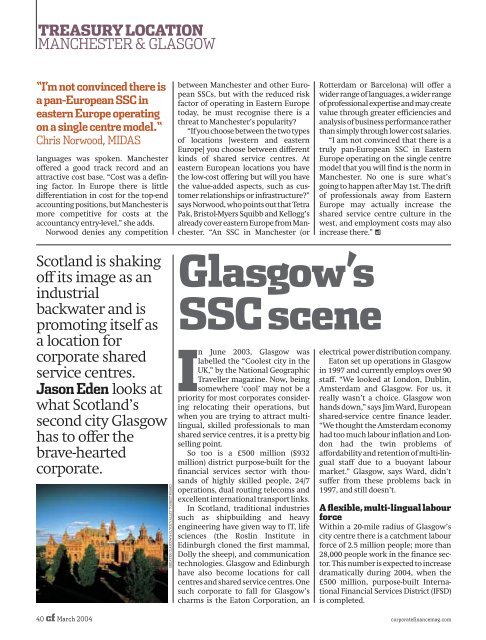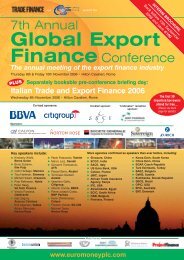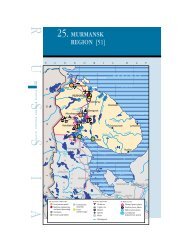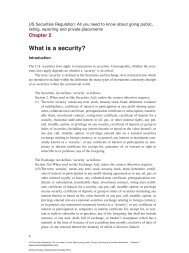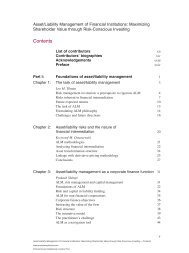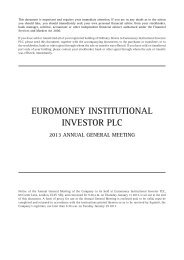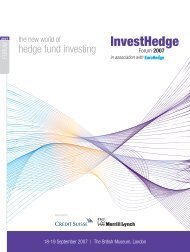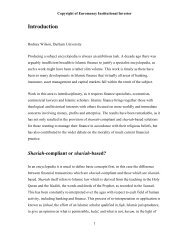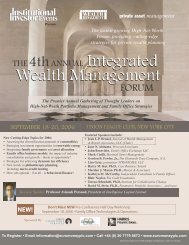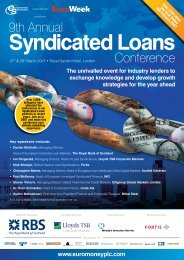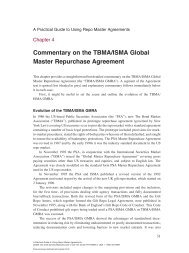JT InternationalJT Internationalannounced the openingof its Manchester-basedEuropean BusinessService Centre inFebruary 2003. As asubsidiary of JapanTobacco – the world’sthird largest cigarettemanufacturer – JTInternational boastssales in excess of $30billion.JT International (JTI)is a shared serviceprofessional. As the t-shirt says, “Been there,done that”. In addition<strong>to</strong> Manchester, thecompany has one inKuala Lumpur,managing the Asianmarket, and one in St.Petersburg, for dealingwith the Russian marketwhere the company hasa particularly strongpresence.The choice for aEuropean location wasbetween sites such asManchester, Barcelona,Rotterdam, Dublin andPrague. For MartinBraddock, JTI’s CFO, thecreation of a sharedservice centre in Europewas linked <strong>to</strong> an overallcorporate strategy:“Throughout theprocess, JTI was trying<strong>to</strong> become a low-costquality producer. Thatapplied <strong>to</strong> the productitself as well as the backofficefunctions. Thisdrove the thinking<strong>to</strong>wards a shared servicecentre.”The employee basewas <strong>to</strong>p priority. “Thecriteria for the sharedservice centre wasessentially theavailability of labour,the skill of labour andthe cost of labour. Weformerly evaluated theNetherlands and our St.Petersburg operationsbut we discounted anumber of otherlocations as we weremoving very quickly.“We heard Dublinwas over-heating interms of its sharedservices and that we’dbe moving in <strong>to</strong> a zoo,competing for staff. InBarcelona we heardthere were problemswith retaining the rightquantity and quality ofstaff and in Prague therewere similar concerns.”So why Manchester?A grant from theNorth WestDevelopment Agency(NWDA) of £630,000($1.2 million) proved agood incentive, as didcooperation offered bythe ManchesterInvestment andDevelopment AgencyServices (MIDAS). “Thegrant was not the overridingfac<strong>to</strong>r in ourdecision, but it didindicate an acceptanceby the NWDA of ourmoving in <strong>to</strong> the area. Insome countries thedevelopment agencieswere only luke-warm intheir reception.”The challenge forBraddock was theconceptual change.“Any shared servicecentre experience isdifficult - you’re“Throughout theprocess JTI wastrying <strong>to</strong> become alow-cost qualityproducer. Thatapplied <strong>to</strong> theproduct itself aswell as the backofficefunctions.”changing processes,systems andorganisation. We did theprocess in 12 monthsbut it was very painful.”After his experiencesin creating a sharedservice centre, whatadvice does he have fora CFO setting out on theshared service route?“You can’t do enoughplanning, you have <strong>to</strong>manage the executionissues and theorganisation has <strong>to</strong> havethe s<strong>to</strong>mach <strong>to</strong> gothrough the change.” Itis also worthremembering, saysBraddock, that, “sharedservice centres are onlypart of the road map <strong>to</strong>standardised processeswithin a company.”The EuropeanBusiness Service Centrehas 86 employeesranging from seasonalqualified accountants <strong>to</strong>processing clerksworking on corporateconsolidation,reporting, generalledger activities for theEuropean entities,accounts payable andreceivable, processingpayments and ancillarySAP support.time at its four universities and is fastbecoming a target for young Europeanslooking <strong>to</strong> improve their English andfind employment in an area whereaccommodation is affordable. “Theblend of UK nationals and foreignnationals is an important fac<strong>to</strong>r in Manchester’ssuccess,” says Norwood. “SSCsin Manchester will find their staff are40% <strong>to</strong> 60% from outside the UK and areoften nationals of the country whosemarket they are serving. This has significantadvantages when dealing withexternal cus<strong>to</strong>mers and suppliers andmeans that a higher quality or morevalue-added service can be offered thanfrom some other locations.”Cammie Seymour at Michelinagrees. Project manager at the Frenchownedmanufacturer, Seymour hasoverseen the creation of the Manchesterbase since its inception in Oc<strong>to</strong>ber2002. “Manchester had a huge advantagein that is has a very largeinternational population and graduateswith strong language skills. We sendour graduates abroad for four monthsat a time <strong>to</strong> learn treasury skills inanother country - they have <strong>to</strong> fit in culturallybut also be able <strong>to</strong>communicate,” she says. The skills arethen transplanted back <strong>to</strong> Manchesterwhere Michelin employs 150 people inaccounts payable, fixed asset accounting,general ledger and intra-groupaccounting.CF was lucky <strong>to</strong> track down Seymour.She spends much of her time flyingbetween Michelin’s European bases <strong>to</strong>check on the treasury teams and ensurethe employees are fully trained beforetheir final return <strong>to</strong> Manchester. “Wedid a study over two years on whether<strong>to</strong> create a shared service centre at theEuropean level. We looked at 15 citiesin <strong>to</strong>tal but the shortlist came down <strong>to</strong>Manchester, Madrid or Michelin’s basein Clermont-Ferrand in France.”Michelin’s consultants suggestedBarcelona and Lisbon, or real offshoringlocations like India. But asSeymour notes, “it’s important <strong>to</strong> be inEurope as our cus<strong>to</strong>mers are inEurope.” With official corporate languagesof French or English, Seymourpoints out that Michelin needed a destinationwhere at least one of thecorporatefinancemag.com March 2004 cf 39
TREASURY LOCATIONMANCHESTER & GLASGOW“I’m not convinced there isa pan-European SSC ineastern Europe operatingon a single centre model.“Chris Norwood, MIDASlanguages was spoken. Manchesteroffered a good track record and anattractive cost base. “Cost was a definingfac<strong>to</strong>r. In Europe there is littledifferentiation in cost for the <strong>to</strong>p-endaccounting positions, but Manchester ismore competitive for costs at theaccountancy entry-level,” she adds.Norwood denies any competitionbetween Manchester and other EuropeanSSCs, but with the reduced riskfac<strong>to</strong>r of operating in Eastern Europe<strong>to</strong>day, he must recognise there is athreat <strong>to</strong> Manchester’s popularity?“If you choose between the two typesof locations [western and easternEurope] you choose between differentkinds of shared service centres. Ateastern European locations you havethe low-cost offering but will you havethe value-added aspects, such as cus<strong>to</strong>merrelationships or infrastructure?”says Norwood, who points out that TetraPak, Bris<strong>to</strong>l-Myers Squibb and Kellogg’salready cover eastern Europe from Manchester.“An SSC in Manchester (orRotterdam or Barcelona) will offer awider range of languages, a wider rangeof professional expertise and may createvalue through greater efficiencies andanalysis of business performance ratherthan simply through lower cost salaries.“I am not convinced that there is atruly pan-European SSC in EasternEurope operating on the single centremodel that you will find is the norm inManchester. No one is sure what’sgoing <strong>to</strong> happen after May 1st. The drif<strong>to</strong>f professionals away from EasternEurope may actually increase theshared service centre culture in thewest, and employment costs may alsoincrease there.” cfScotland is shakingoff its image as anindustrialbackwater and ispromoting itself asa location forcorporate sharedservice centres.Jason Eden looks atwhat Scotland’ssecond city Glasgowhas <strong>to</strong> offer thebrave-heartedcorporate.GREATER GLASGOW & CLYDE VALLEY TOURIST BOARDGlasgow’sSSC sceneIn June 2003, Glasgow waslabelled the “Coolest city in theUK,” by the National GeographicTraveller magazine. Now, beingsomewhere ‘cool’ may not be apriority for most corporates consideringrelocating their operations, butwhen you are trying <strong>to</strong> attract multilingual,skilled professionals <strong>to</strong> manshared service centres, it is a pretty bigselling point.So <strong>to</strong>o is a £500 million ($932million) district purpose-built for thefinancial services sec<strong>to</strong>r with thousandsof highly skilled people, 24/7operations, dual routing telecoms andexcellent international transport links.In Scotland, traditional industriessuch as shipbuilding and heavyengineering have given way <strong>to</strong> IT, lifesciences (the Roslin Institute inEdinburgh cloned the first mammal,Dolly the sheep), and communicationtechnologies. Glasgow and Edinburghhave also become locations for callcentres and shared service centres. Onesuch corporate <strong>to</strong> fall for Glasgow’scharms is the Ea<strong>to</strong>n Corporation, anelectrical power distribution company.Ea<strong>to</strong>n set up operations in Glasgowin 1997 and currently employs over 90staff. “We looked at London, Dublin,Amsterdam and Glasgow. For us, itreally wasn’t a choice. Glasgow wonhands down,” says Jim Ward, Europeanshared-service centre finance leader.“We thought the Amsterdam economyhad <strong>to</strong>o much labour inflation and Londonhad the twin problems ofaffordability and retention of multi-lingualstaff due <strong>to</strong> a buoyant labourmarket.” Glasgow, says Ward, didn’tsuffer from these problems back in1997, and still doesn’t.A flexible, multi-lingual labourforceWithin a 20-mile radius of Glasgow’scity centre there is a catchment labourforce of 2.5 million people; more than28,000 people work in the finance sec<strong>to</strong>r.This number is expected <strong>to</strong> increasedramatically during 2004, when the£500 million, purpose-built InternationalFinancial Services District (IFSD)is completed.40 cf March 2004 corporatefinancemag.com


